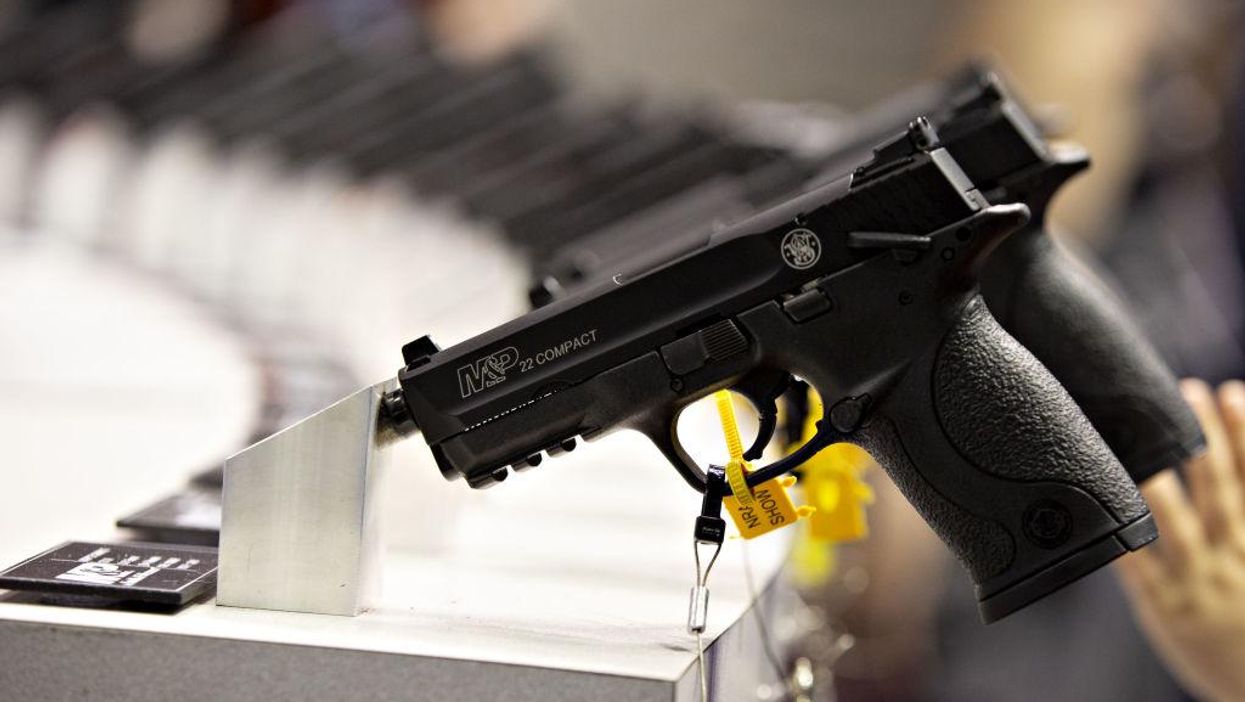
Daniel Acker/Bloomberg via Getty Images

Plaintiffs alleged the gunmaker used misleading marketing to attract 'impulsive young men with military complexes,' leading to a 2019 synagogue shooting
A San Diego judge ruled last week that the victims of a 2019 shooting in a California synagogue can sue Smith & Wesson, the gun manufacturer that made the weapon used in the assault, for damages.
Judge Kenneth Medel of the Superior Court for San Diego County rejected an argument made by Smith & Wesson claiming lawsuits are prohibited under the Protection of Lawful Commerce in Arms Act (PLCAA), Reuters reported.
The federal law is meant to provide protection to firearms manufacturers and retailers when their products are used in criminal activity. But in their June 2020 lawsuit, the plaintiffs argued that Smith & Wesson shouldn't be shielded by the regulation because it broke state law by designing the M&P15 rifle to be easily modified into an "assault weapon."
In his ruling, Medel agreed that the gunmaker's alleged misleading marketing violated California's unfair competition law.
According to Reuters, plaintiffs argued the company used marketing "that attracted impulsive young men with military complexes who were particularly likely to be attracted to the unique ability of AR-15 style weapons."
Plaintiffs noted the "M&P" in the name stands for "military and police," but argued the gun was largely sold to civilians, including the alleged shooter, then 19-year-old John Earnest.
Last month, Earnest, now 21, signed a conditional plea agreement that is now in the hands of U.S. Attorney General Merrick Garland, according to the San Diego Union-Tribune.
Earnest is accused of opening fire in a synagogue in Poway, California, in April 2019, killing one person and wounding three others. There were reportedly 54 people in the synagogue at the time of the shooting.
Earnest may still face the federal death penalty for his crimes, but plaintiffs in the Smith & Wesson case want punishment for his crimes to extend to the gun industry, as well.
"Today's judgment is a victory, and an important step on the road to justice for the victims of the shooting at Chabad of Poway Synagogue, and all Americans who believe that the gun industry is not above the law," said Jonathan Lowy, a lawyer for the plaintiffs, in a statement. "We look forward to proving our case in court, and working to prevent future tragedies."
The lawsuit reportedly seeks unspecified damages in addition to an injunction against Smith & Wesson requiring the gunmaker to cease its allegedly deceptive marketing campaigns.
TheBlaze reached out to Smith & Wesson seeking comment on the recent ruling but has not yet received a response.